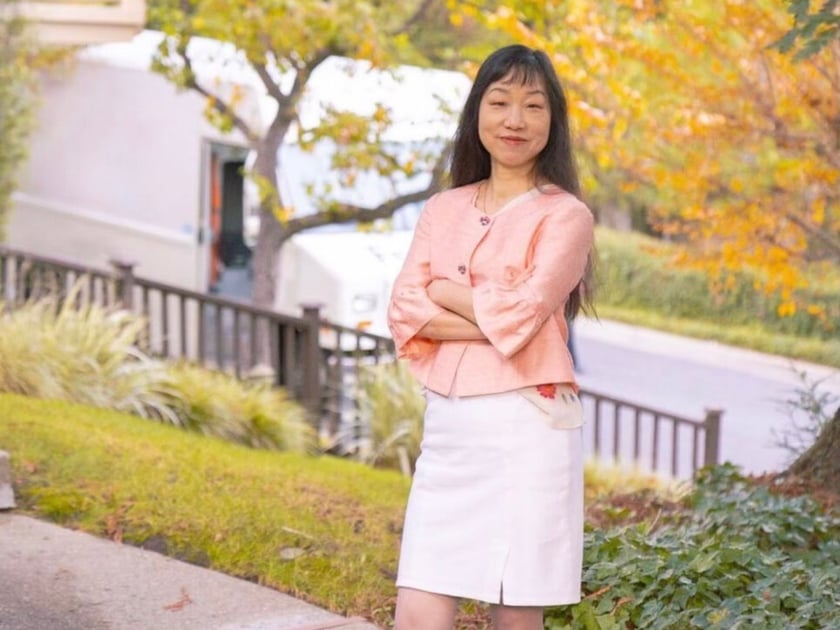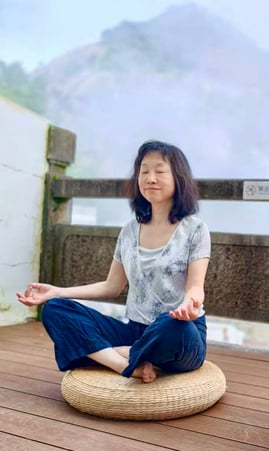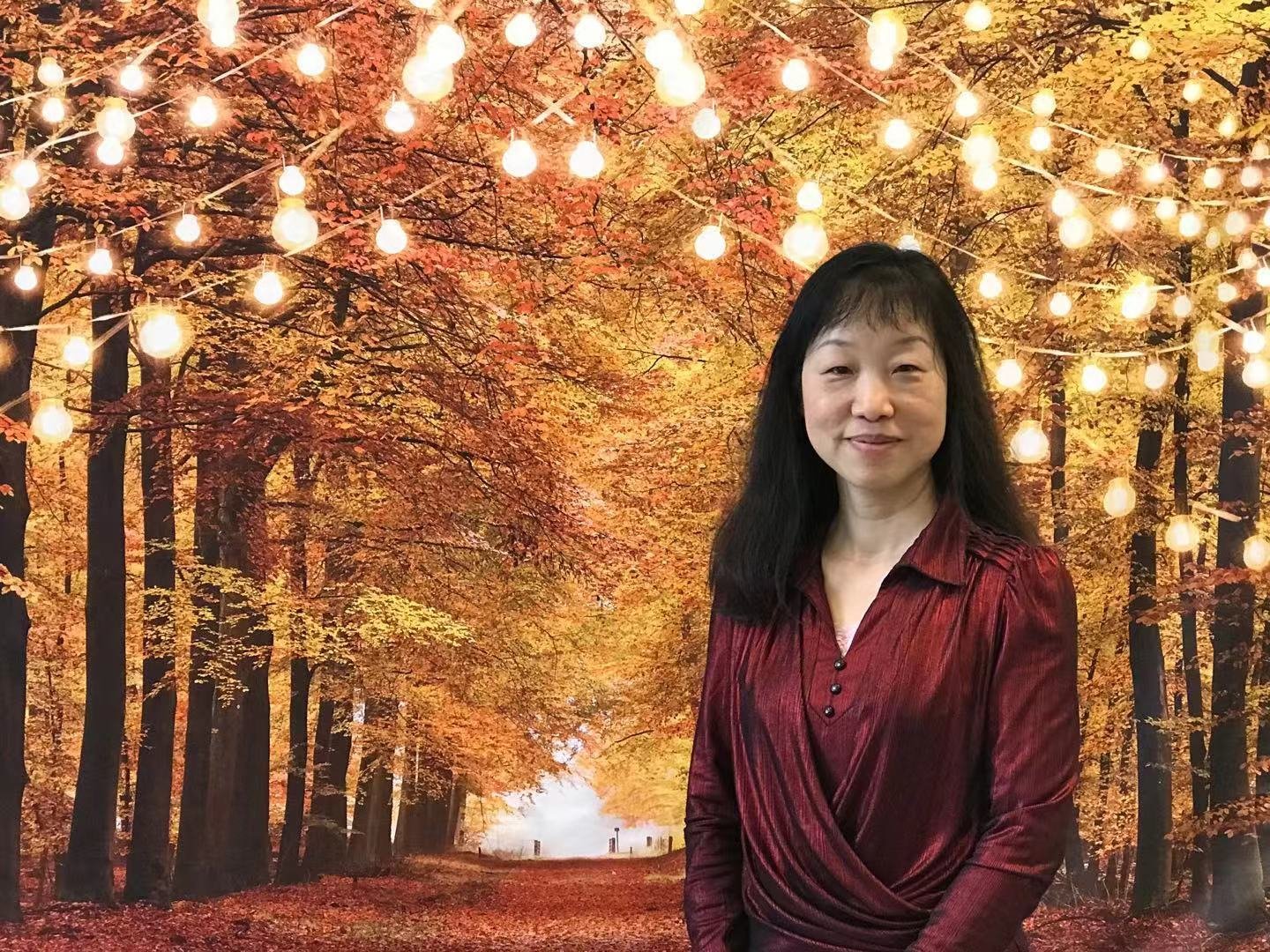
The Second Phase of My Life
Alumna and student Maggie Tsai reflects on how PAU supported her pathway into counseling.
In 2020, when Maggie Tsai’s children were grown, she began to reflect on what she called “the second phase of my life” and was drawn toward counseling. “I had an internal calling,” she says, “an interest in serving people.” Tsai came to the United States in 2011 from China, where she had a completely different career. Building from a start in journalism, a stint at the United Nations, and an editor-in-chief role, Tsai had spent 14 years running her own brand communications and marketing firm serving multinational companies in China. When she came to the United States, it was a big shift - “I was a full-time mom!” she says.
Tsai entered PAU’s MA in Counseling program as a result of this desire for a new career phase. She immediately felt at home. “PAU is in the mindset of community service,” Tsai says, citing the eClinic’s approach to providing free support for underserved populations. “The eClinic advances grad students’ skills, and also on the receiving end creates opportunities for communities” - a “two birds, one stone” approach that meets “so many needs.” She applauds the school for its forward-looking initiatives that adopt this same spirit, including the bilingual certificate for Spanish and Mandarin in clinical practice, aimed toward serving multicultural populations.
She also appreciated the student-centered approach of a PAU education. “PAU staff and faculty are driven by student success,” she says. PAU gives students the space and resources to enter a program and really answer the question - “what is my passion?” She also enthusiastically gives credit to PAU’s librarians, who encourage student outreach and offer a high degree of research support. “The staff really care,” she reflects.
 After completing her MA in 2023, Tsai continued to work on her hours for licensure and deepen her skills in areas of practice like Somatic Experiencing, Brainspotting, and Internal Family Systems. “I gained a sense for what was most important, what I wanted to pass forward,” she says. During that year, Tsai continued to think about how she could develop more individually. It was this process of reflection that led Tsai to enroll in PAU’s PhD program in Counselor Education and Supervision in late 2024, and became a member of the very first cohort. The degree felt like “a multiplier” for impact, Tsai says.
After completing her MA in 2023, Tsai continued to work on her hours for licensure and deepen her skills in areas of practice like Somatic Experiencing, Brainspotting, and Internal Family Systems. “I gained a sense for what was most important, what I wanted to pass forward,” she says. During that year, Tsai continued to think about how she could develop more individually. It was this process of reflection that led Tsai to enroll in PAU’s PhD program in Counselor Education and Supervision in late 2024, and became a member of the very first cohort. The degree felt like “a multiplier” for impact, Tsai says.
The variation among the seven students currently in Tsai’s cohort is substantial - particularly in age - but Tsai notes many commonalities between students beyond their shared engagement in counseling. “We are all committed to teaching and research,” she says, “And we are all self-driven. There is a high sense of mission - both personal mission, and mission for service.” And the vast majority of students in the cohort were PAU alumni already - evidence, Tsai points out, that PAU is attractive to students - “people want to come back!” PAU’s student-centered approach is also evident in the CES program, Tsai says - “It’s a new program, and they are constantly reflecting on how to ensure it lives up to the highest standards. But at the same time, our program is also asking - how can we cater to your individual needs while living up to those standards?” While CES students follow the same curriculum, individual backgrounds are always considered. “I’m really touched by that thought,” Tsai adds.
She gives credit to President Maureen O’Connor for her “strong imprint” on the culture and pursuit of excellence at PAU. “I could feel that the pursuit of academic excellence at PAU is very high - from the strict selection process to the very professional and skilled staff and faculty.” The strength of PAU’s pursuit of mission and President O’Connor’s leadership, Tsai says, has made the university “more competitive - a bigger brand name in the counseling industry.” From internship placement to the significant roles her MA classmates are playing in the field, the scope of PAU’s impact is increasingly clear to Tsai. And with the integration of new needs and technologies such as AI into PAU’s framework, explorations of practice are “advancing day by day.”
In her own life, Tsai says that her education shaped her as a parent. “My counseling studies and practice helped me understand my kids more deeply, and my way of communicating with them changed,” she says. “I’m more able to understand them from their perspective and from a more humane perspective; it actually elevated my own life.”
And now, Tsai is working to better the lives of others as well. In 2023, Tsai established the PAU Innovart Research Grant, which will fund research support for up to four counseling students each year across both the MA and PhD programs. “I really wanted to give back to PAU - because PAU had given me so much,” says Tsai. She wanted to maximize her contributions, and “research can create a snowball effect,” she says. “Research projects can actually serve people in need,” Tsai notes, and can also “highlight PAU’s true standing within the field.”
“If more alumni see that more input can amplify that snowball effect, I hope that more alumni want to give.” This is the “early budding stage” of the project, says Tsai, but like the long-term impact of a PAU education, she hopes that over the coming years it will “grow into something special.”




